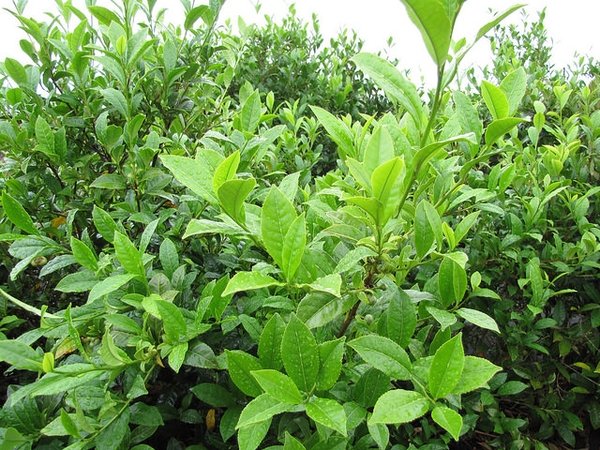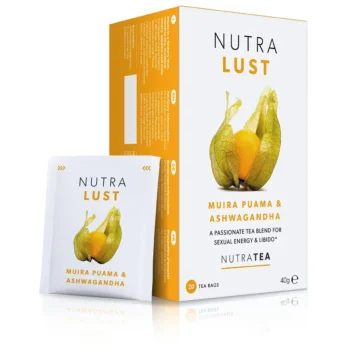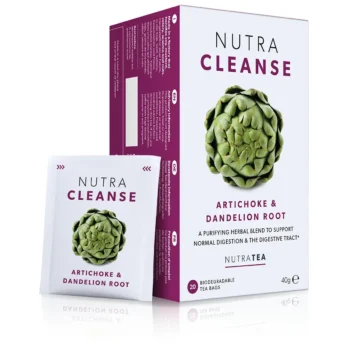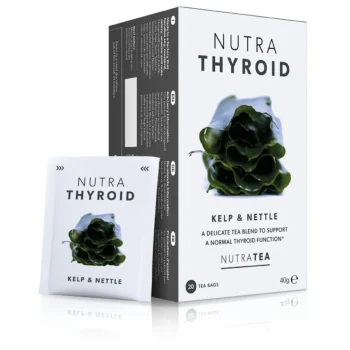Black Tea Lowers Glucose Spikes and Fights Inflammation

All tea lovers are acquainted with Camellia sinensis, the plant who gives us black, green, oolong, white, and yellow teas. Oxidizing Camellia sinensis leaves and buds by exposing them to various degrees of moist, oxygen-rich air produces this range of teas. The strongest is black tea, produced through full oxidation of the leaves. Black tea is the second most-consumed drink (after water)! Drinking black tea with food reduces the post-meal glucose spike. This reduces the risk of developing diabetes and helps diabetics manage their blood sugar. NutraGlycemia is a blend containing black tea and other herbs that support blood sugar regulation. Black tea’s antioxidants fight inflammation. It can improve libido by boosting energy without causing stress and insomnia, which is why we included it in NutraLust, a tea blend for improving sexual performance. Drinking black tea consistently can also help heart health by lowering LDL cholesterol and blood pressure and decreasing the risk of ischemic stroke.
Black tea contains:
- Antioxidant polyphenol groups, including catechins, theaflavins, and thearubigins
- Caffeine
- L-theanine
- Theobromine

Blood Sugar Regulation
Black tea lowers glucose spikes, also known as postprandial glucose, or the elevated amounts of sugar in your blood after you eat. It achieves this by allowing the kidney to excrete more glucose. In reaction to the glucose you get from a meal, your pancreas secretes insulin. Insulin makes your cells more sensitive to glucose and increases how much glucose the cells absorb from your blood. This process lowers blood sugar to normal levels. When the pancreas can’t produce enough insulin or the cells develop a resistance to insulin, the glucose stays in the blood and blood sugar remains high. This is called hyperglycemia. Persistently high blood sugar can cause diabetes. In people with diabetes, glucose spikes are dangerous and can cause health complications. In a study of twenty-four people, some with pre-diabetes and some without, subjects who drank a high-sugar beverage with black tea had a significantly lower glucose spike afterward compared to those who drank a placebo.

Fights Inflammation
Black tea contains antioxidant polyphenols that fight inflammation, minimizing cell damage caused by free radicals. Over time, chronic inflammation from free radicals produced by the body and absorbed from the environment can cause chronic diseases. Black tea’s antioxidant properties also boost the immune system, warding off infections caused by viruses and harmful bacteria. Adding milk decreases black tea’s antioxidant properties because black tea’s flavonoids bind to milk’s proteins.
Improves Sexual Performance
Stress and lack of sleep negatively impact libido. Black tea is less likely to stress you out and keep you awake than coffee. This is because black tea contains L-theanine, an amino acid that lowers anxiety and reduces insomnia, and Theobromine, another stimulant. Black tea’s caffeine content (about half that of coffee) temporarily improves your energy, concentration, and metabolism, but is less likely to negatively impact your sensual wellbeing. NutraLust is a passionate tea blend of black tea and other herbs that improve sexual performance.

Improves Heart Health
Incorporating black tea into your daily routine in moderation could be good for your heart. Its flavonoid constituents, which give black tea its dark color, reduce LDL cholesterol and lower the risk of ischemic stroke by keeping blood vessels open and flexible. Studies show that black tea also reduces systolic and diastolic blood pressure, due partially to Theobromine.
Improves Gut Bacteria
Black tea preserves intestinal homeostasis, or balance. It possesses antimicrobial properties that kill off harmful pathogens in the digestive tract, improving gut bacteria. Its polyphenols can improve the liver’s metabolism. Both these effects contribute to healthy weight loss. Black tea also repairs the lining of the digestive tract, improving mucosal immunity and decreasing the likelihood of developing inflammatory bowel disease and intestinal tumors.
About Camellia Sinensis
Camellia sinensis means “flower from China, ” and it did indeed originate in Asia. Now, the plant is intensively cultivated throughout tropical and sub-tropical regions worldwide. It is a hardy, evergreen shrub in the family Theaceae. It has a strong taproot and white-yellow or pale pink flowers. Enjoy a cup of NutraGlycemia or NutraLust and enjoy how the healing, energizing leaves of of Camellia sinensis animate the blends.




